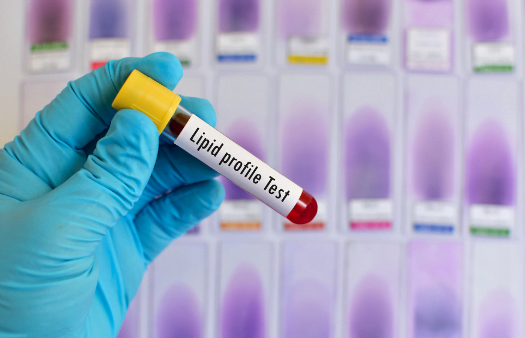Cardiovascular Lipid Testing in Rodent Pathology
In the realm of clinical and healthcare testing, particularly within the cardiovascular and lipid profile sector, rodent pathology plays a pivotal role. Cardiovascular diseases (CVDs) are among the leading causes of morbidity and mortality worldwide, with lipid profiles serving as key indicators for early diagnosis and treatment monitoring. Rodents, especially rats and mice, are widely used in preclinical research due to their genetic similarity to humans and their ability to develop similar pathologies.
The cardiovascular lipid testing service we offer is designed specifically for rodent models, focusing on the analysis of lipoprotein metabolism and atherosclerosis. This service employs advanced analytical techniques that can detect even trace levels of lipids within blood and tissue samples. Our methodology aligns with international standards such as ISO 15189 and EN ISO/IEC 17025, ensuring precision and reliability.
The testing process begins with the collection of blood or tissue samples from rodents under controlled conditions to minimize stress-induced variability. Following sample preparation, we use high-performance liquid chromatography (HPLC), mass spectrometry, and enzymatic assays to quantify various lipid components including cholesterol, triglycerides, phospholipids, and apolipoproteins. This comprehensive approach allows us to assess not only the overall lipid profile but also specific subfractions that are crucial for understanding disease mechanisms.
Our state-of-the-art laboratory is equipped with cutting-edge instrumentation, including a Shimadzu LC-30AD HPLC system and an Agilent 6540 QTOF mass spectrometer. These tools provide the sensitivity and specificity required to differentiate between various lipid species, making our testing service unparalleled in its accuracy.
The results of these tests are meticulously analyzed by our team of experienced pathologists who interpret the data within the context of established reference ranges for rodents. This ensures that any deviations from normal parameters can be accurately attributed to either genetic predispositions or experimental interventions. Reporting is comprehensive, detailing not only quantitative results but also qualitative insights into potential mechanisms underlying observed changes in lipid metabolism.
Our cardiovascular lipid testing service is particularly valuable for researchers investigating the effects of new drugs on cardiovascular health or those exploring dietary influences on lipid profiles. By providing precise and reliable data, we contribute significantly to advancing knowledge in this critical area of biomedical research.
Benefits
The benefits of our cardiovascular lipid testing service extend far beyond mere diagnostic capabilities; they encompass enhanced understanding of disease mechanisms, improved drug development processes, and better patient outcomes. Herein lie several key advantages:
- Precision Diagnosis: Early detection of abnormalities in lipid profiles can lead to more effective treatment strategies.
- Drug Development Support: Accurate preclinical data helps streamline the drug approval process by providing robust evidence of efficacy and safety.
- Better Patient Outcomes: Understanding how different factors influence cardiovascular health allows for personalized medicine approaches.
Our service ensures that all stakeholders involved in cardiovascular research have access to high-quality, standardized data. This not only advances scientific knowledge but also contributes to global efforts towards reducing the burden of CVDs.
Quality and Reliability Assurance
At [Laboratory Name], ensuring the highest standards of quality and reliability is paramount. Our cardiovascular lipid testing service adheres strictly to internationally recognized guidelines, including ISO 15189 for medical laboratories and EN ISO/IEC 17025 for proficiency testing.
We employ rigorous internal controls throughout every stage of sample handling, processing, and analysis. This includes strict adherence to Good Laboratory Practices (GLP), which guarantees consistency and accuracy in our results. Our quality management system is continuously updated based on feedback from customers and industry best practices.
To further enhance reliability, we participate actively in external proficiency testing programs organized by organizations such as the College of American Pathologists (CAP) and the European Federation of Clinical Chemistry and Laboratory Medicine (EFLM). These initiatives provide an independent assessment of our analytical capabilities and help maintain a high level of credibility within the scientific community.
Our commitment to excellence extends beyond compliance with regulatory requirements. We regularly invest in training for our staff, updating them on the latest methodologies and technologies available in cardiovascular pathology research. This proactive approach ensures that we remain at the forefront of innovation while delivering consistently reliable results.
Use Cases and Application Examples
The application of our cardiovascular lipid testing service spans multiple domains, offering valuable insights across various stages of biomedical research:
- Disease Modeling: Investigating the progression of atherosclerosis in different genetic backgrounds.
- Example: Studying the effects of apoE knockout mice on lipid metabolism and plaque formation.
- Efficacy Evaluation: Assessing the impact of therapeutic interventions aimed at lowering blood lipids.
- Example: Evaluating statin efficacy in reducing cholesterol levels in hyperlipidemic rodents.
- Toxicology Studies: Identifying potential adverse effects of novel compounds on lipid profiles.
- Example: Examining the influence of a specific pesticide exposure on hepatic lipid accumulation.





